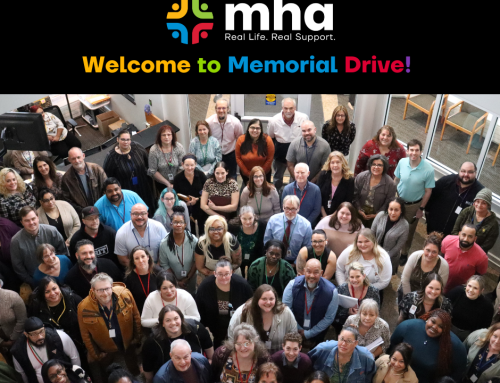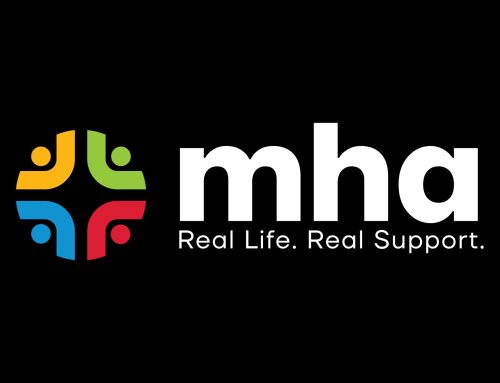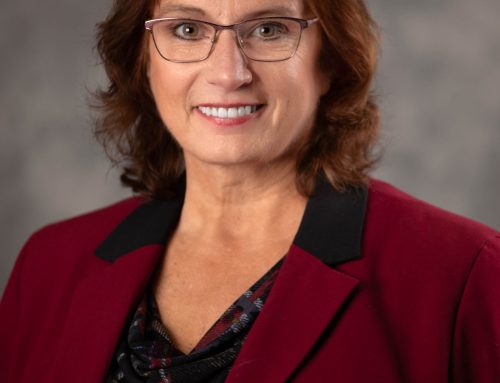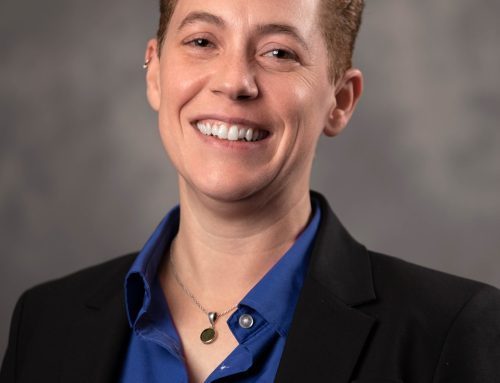With opioid-related overdose deaths on the rise again in the commonwealth, according to the latest data from the Massachusetts Department of Public Health, stepped-up prevention efforts are key across the state.
This spring, the Mental Health Association (MHA) Bestlife Center for Emotional Health and Wellness, in partnership with the Coalition for Outreach and Recovery Education (CORE) of Greater Westfield, were among 16 nonprofits awarded $1.2 million in Better Together Grants by Baystate Health as part of its Community Benefits program at its main campus, as well as at affiliated hospitals.
Baystate’s grant of $84,500 over three years is enhancing the Drug Addiction and Recovery Team (DART) program that has been doing outreach work in collaboration with the Westfield Police Department and the Coalition for Outreach Recovery and Education (CORE) to overdose survivors for more than a year in the city where Baystate Noble Hospital is located. Outreach efforts are led by a trained DART team that has included the Westfield Police; Patrick Meuse, Complex Care Coordinator at Mercy Medical Center; and Gabriel Quaglia, Post Overdose Outreach Coordinator at Tapestry Health. Now, with Baystate funding, MHA Recovery Coaches, Dallas Clark and Tommy Smyth are now part of that team and its crucial prevention work with those most at risk.
DART is a regional program launched by the Northampton Health Department and funded by a combination of Federal grants from The Substance Abuse and Mental Health Services Administration (SAMSHA) FR CARA originally in 2017 and again 2022, as well as the Comprehensive Opioid, Stimulant, and Substance Abuse Programs (COSSAP) for the continued expansion regionally . DART offers free services that support people from all walks of life. Its goal is to reduce overdose deaths and risks related to use of any substance, from alcohol to opioids. DART is made up of specially trained recovery coaches, harm reduction specialists, and first responders who provide access to harm reduction tools, such as NARCAN and safety plans for use, connections to community resources, and short or long-term recovery support.
“I knew we needed some recovery coaches on board,” said Kathi Cotugno, who, as coordinator of CORE of Greater Westfield, works under the city’s Health Department. “CORE had connected with MHA through a previous Baystate grant so we applied for this Baystate grant together to bring recovery coaches into our DART program in Westfield that is still relatively new and then to expand to service the Noble Hospital service area.”
Cotugno added that she is “excited” to have Clark and Smyth on the team to make recovery support more accessible and acceptable to those who need it in Westfield, a small city of around 40,000, as well as those living in the Noble service area that covers nine other communities, including West Springfield, Southwick and the Feeding Hills section of Agawam.
Access to police data on overdose incidents as allowed is an important element in helping public health and medical professionals prevent drug-related harm and fatal overdoses, and Cotugno said Greater Westfield’s DART program has a system in place that enables Clark and Smyth, who are now doing the initial outreach, to be notified when there is a post overdose case for possible services.
“Typically, Tommy and Dallas as recovery coaches will reach out to that person to offer them services either in a phone call and or text,” Cotugno said. “Then, joined by Patrick and Gabe, they will try to make physical contact with the individual and family by knocking on the door. Sometimes it is the family who is more on board at first with information left for the individual. It is all about building trust.”
Kimberley Lee, MHA Vice President of Resource Development and Branding, said the nonprofit’s involvement with CORE on the grant that enables recovery coaches to engage overdose survivors with a range of supports from counseling to comprehensive treatment “speaks to the importance of collaboration and partnership.”
“The more we can work together to support community needs, the more individuals will be served,” Lee said. “These resources, sadly, continued to be needed as much as ever and the more we can talk about recovery coaching the more we can make resources available for individuals who are challenged by substance use. The need is real and significant.”
Cotugno, joined by Smyth, praised the DART approach for treating addiction as a disease rather than a crime with police involvement at this point often behind the scenes post overdose with knowledge of where the DART members are doing outreach in Westfield in support of recovery.
Clark, who is MHA’s peer recovery coach supervisor, said when he makes that initial knock, he lets the individual know “I am also in recovery and I get it.”
“I know it is tough,” Clark said. “I have been there and I am still working on my recovery so I know it is not going to happen overnight. I just encourage them to make that first step even if it is just moving that big toe toward engagement and harm reduction. For us to change, we have to change. That is what recovery is all about.”
Clark says he tells “individuals that I don’t help them in recovery, I support them.”
“Helping someone is putting away the groceries,” Clark said. “For someone in recovery, they have to put in the work. I am here to support you, but it is your recovery. What do you want it to look like? What does it mean if you had a drink or use a drug? Let’s look at what we can do differently. Relapse doesn’t happen overnight either. I use the word ‘we’ to let them know they are not alone. We learn from our mistakes.”
He added, “There is always guilt and shame in the beginning. I tell people shame and guilt are going to kill you,” Clark said. “This is a life and death situation. We have to be blunt. That guilt and shame are what the disease is telling you. We have to overcome that. We have to pick up the phone and ask for that support.”
According to Alane Burges, MHA’s Bestlife Clinic Director, “BestLife is very excited and honored to partner with Baystate and the DART/CORE program to be able to work together with the community in addressing unmet areas of need. We are optimistic that our partnership can strengthen the resources available to those in need while providing support to family members, instilling hope, and saving lives.”
The belief in saving lives is something Smyth himself can appreciate, adding that he “takes a deep breath at every door.”
“The motivational interviewing starts the moment the door opens whether it is by the individual person or family member,” Smyth said. “We work on the act of listening and being as compassionate as possible. I want the person to be comfortable on our first encounter and to know that we are there to assist. We want them to allow us the opportunity to have a relationship with them. This is the hope – that when we come with outreach and help – they will be ready to accept it and move forward to change their lives.”
For more information or to connect with a recovery coach, visit www.mhainc.org/DART or call or text 413 588 2335.
Interested in becoming a recovery coach? Contact Dallas Clark by emailing dclark@mhainc.org
